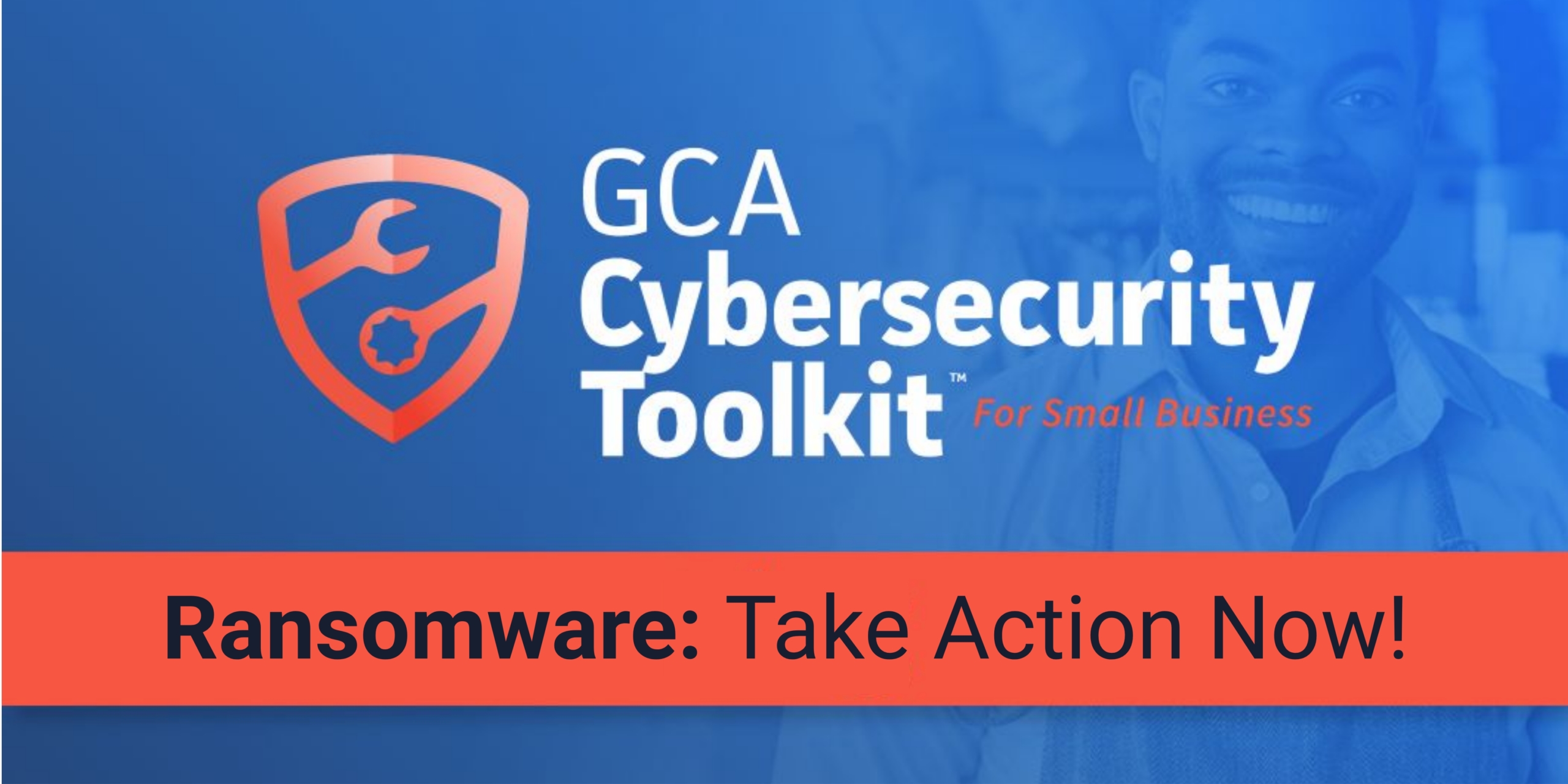Copyright @ 2025 Global Cyber Alliance | Sitemap

The GCA Cybersecurity Toolkit Can Help Small Businesses Implement White House Recommendations
On June 2nd the U.S. White House took the unusual step of issuing an open memo to all corporate executives and business leaders in response to the very real and growing impact of ransomware across all sectors, geographies, and societies.
The memo highlighted the need to take urgent action; individuals, small businesses, large corporations, public and private sectors are all at risk. The memo recommended a number of key steps to be taken now to immediately reduce the risk of a ransomware attack. The threat is increasing, and these actions should be prioritized.
Ransomware is a threat that has the capability to undermine and impact core business function, to stop it in its tracks, to prevent the capability to operate – PERIOD. Those that recognize this will be better equipped to deal with a ransomware attack – to anticipate, prevent, and prepare for one.
For small businesses cybersecurity often falls further down the ‘to do’ list. There are a number of reasons for this, but small businesses that ignore this advice do so at their peril. While governments, law enforcement, and public and private bodies work together to disrupt and disarm these criminals there is much that small businesses can do today, for free, to reduce their risk.
Here we provide links to the relevant sections of the GCA Cybersecurity Toolkit for Small Business that align with the White House recommendations, as they relate to small businesses, to help implement the recommendations:
| Enabling multi-factor authentication to protect passwords | Beyond Simple Passwords |
| Updating and patching software & encryption | Update Your Defenses |
| Supporting end-point detection and response through anti-virus and protective DNS | Prevent Phishing and Malware |
| Regularly backing up data, including off-line | Backup and Recover |
Social engineering often plays a role in providing the initial route into the business network. The majority of cyberattacks start with a phishing email. The need for an informed and vigilant workforce is paramount. Alongside the toolkit is a learning portal that provides awareness training and useful downloadable checklists to help contextualize, identify, and avoid these risks.
Please implement the tools that are relevant for your business. The toolkit does not cover all the White House recommendations contained within the memo, but it does address the majority of the preventative ones. And it’s free!
The author, Gill Thomas, is the Community Manager at the Global Cyber Alliance. You can connect with her on LinkedIn.
Additional Resources:
The U.S. Department of Homeland Security, Cybersecurity & Infrastructure Security Agency (CISA) has Ransomware Guidance and Resources for in depth and comprehensive advice.
The U.S. Department of Justice guidance provides help with formulating an incident response plan.
U.S. Government guidance provides advice on reporting an incident to law enforcement within the US.
Europol provides advice on reporting an incident within European countries.
The No More Ransom project is an initiative by the National High Tech Crime Unit of the Netherlands’ police, Europol’s European Cybercrime Centre, Kaspersky, and McAfee with the goal to help victims of ransomware retrieve their encrypted data without having to pay the criminals.
How CNBC reported the memo.

